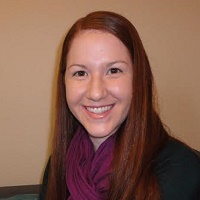Managing Professional Boundaries: Can Therapists Counsel Family and Friends?
Most therapists and counselors don't provide therapy to family members or close friends due to ethical concerns about objectivity and boundary violations. Professional distance is essential for effective therapy. Treating loved ones risks bias, compassion fatigue, and potential licensing violations. Licensed professionals recommend maintaining clear boundaries between work and personal relationships.

If your career goal is to become a counselor or therapist, you may have wondered how hard it will be to leave your work at the office and refrain from counseling your spouse, children, close friends, and family members. This is one of the most common challenges faced by mental health professionals, from licensed marriage and family therapists to clinical psychologists.
The temptation to "therapize" loved ones is natural. You've invested years in education and training to help people navigate emotional challenges. But applying these professional skills to personal relationships creates complications that can harm both your relationships and your career.
We spoke with a panel of experts to find out exactly how they've handled the temptation to "therapize" their loved ones and what strategies they use to maintain healthy boundaries.
Table of Contents
Expert Perspectives on Professional Boundaries
Three experienced mental health professionals shared their insights on managing the challenge of separating professional skills from personal relationships.
Megan Bearce, LMFT: Setting Boundaries from Day One
Megan Bearce is an LMFT in private practice in Wayzata, MN. She specializes in supporting "Super Commuter" couples, gifted girls, and overwhelmed women. Megan penned the celebrated book, Super Commuter Couples: Staying Together When a Job Keeps You Apart, a topic she has also contended with in her own marriage.
Megan finds that while she might be expected to analyze others, she really does not.
I do not want to work when I'm not in the office! I think it's more a matter of people assuming you are doing that. Sometimes, when I meet new people and they learn what I do, they shrink back assuming I will begin analyzing them. I don't. On the other extreme are people who start telling you their story in hopes you will provide them with some free therapy. It's all about boundaries!
Kristen Martinez, M.Ed., Ed.S., LMHCA, NCC: Learning to Separate Roles
Kristen Martinez, M.Ed., Ed.S., LMHCA, NCC, is a Co-Founder of and Counselor at Pacific NorthWell, a counseling and therapy center located in Seattle, Washington. Kristen's specialty areas include internalized oppression, LGBT issues, and issues surrounding women. Some of the healing processes the clinic utilizes are light therapy, massage therapy, and biofeedback. They also have a state-of-the-art relaxation room.
Kristen realized early on that therapizing intimate friends and family would be an area that would need addressing and mastering:
This is a tricky one. When I was in graduate school first learning the basics of the counseling techniques, I couldn't help but start to hear what my friends and family members were saying as 'clients' and began speaking to them as a counselor. It's unavoidable at first, and it takes a conscious effort in the beginning so you can curb this habit and see that it isn't beneficial.
If you are a counselor working with someone you've never met before, you have the unique opportunity to be a neutral sounding-board to this person; you have no prior experiences with this person to color your impression of her. If, however, you previously know someone in another fashion - in this case, if she is a friend or family member - the opportunity you have to be unbiased is completely nonexistent; in fact, it's entirely impossible. It becomes much harder to see multiple perspectives of that person's situation if you already know them intimately, as a friend or family member. For me, it was natural to try to 'therapize' my friends and family members at first, but I just had to reframe my relationships with them as a loved one, and not their counselor.
Dr. Ramani Durvasula: Managing Professional Fatigue

Dr. Ramani Durvasula is a licensed psychologist, Professor of Psychology at Cal State LA (CSULA), and a media commentator for a host of varied television broadcasts and print publications. As a clinical psychologist and educator, Dr. Ramani has learned from thousands of students and patients that the key to healing is addressing the core source of pain and discomfort directly. She's a featured guest on the Dr. Oz Show and a writer on his website. She's also a regularly featured expert on the Dr. Drew Show, the Nancy Grace Show, and Fox News, to name a few. Dr. Ramani is the author of You Are Why You Eat, a book she wrote after losing 85 pounds.
Dr. Ramani shares her feelings on the idea of counseling her friends and family:
I am too tired to do it at the end of the day, but it is hard to turn it off. Usually my fatigue stops me from going in too deep, but clearly a conversation with me or any mental health practitioner is bound to be more incisive. I must say, the nature of my work does leave me really loving my alone time. I think I am pretty tapped out at the end of the day, and socializing feels exhausting - so movies, books - become an escape and an opportunity to be more passive!
Why Professional Boundaries Matter
The concerns our experts raised aren't just about personal preference. They reflect fundamental principles that protect both therapists and the people in their lives. Understanding why these boundaries matter is essential for anyone pursuing a psychology career.
The Objectivity Problem
As Kristen Martinez explained, therapists need to approach clients with a neutral perspective. When you already know someone intimately, true objectivity is impossible. Your shared history, emotional connections, and personal investment in the relationship create inherent biases that interfere with therapeutic judgment.
This isn't a character flaw. It's human nature. The same emotional bonds that make relationships meaningful also make it impossible to provide unbiased professional guidance.
Energy Depletion and Compassion Fatigue
Dr. Durvasula's point about fatigue highlights another critical issue. Therapy work is emotionally demanding. Mental health professionals need downtime to recharge, process their own experiences, and maintain their capacity to help others effectively.
Extending therapeutic work into personal relationships doesn't just blur boundaries. It eliminates essential recovery time, potentially leading to burnout and compassion fatigue that can harm your professional effectiveness.
Relationship Damage
When you approach personal relationships through a therapeutic lens, you fundamentally change their nature. Friends and family don't want a therapist at Thanksgiving dinner. They want a brother, sister, parent, child, or friend who can simply be present without analyzing every interaction.
Constantly "therapizing" loved ones can create distance, resentment, and a feeling that genuine connection has been replaced by clinical assessment.
| Relationship Type | What They Need From You | What They Don't Need |
|---|---|---|
| Spouse/Partner | Emotional support, shared experiences, partnership | Clinical interventions, therapeutic techniques |
| Children | Parenting, guidance, unconditional love | Formal therapy, clinical diagnosis |
| Friends | Companionship, mutual support, authenticity | Free therapy sessions, constant analysis |
| Extended Family | Family connection, understanding, presence | Unsolicited professional advice |
Ethical and Licensing Considerations
Beyond personal reasons, formal ethical codes and licensing requirements create clear boundaries around dual relationships in the mental health field.
American Psychological Association Standards
The APA Ethics Code addresses multiple relationships in Standard 3.05. While it doesn't absolutely prohibit all dual relationships, it clearly states that psychologists must refrain from entering into relationships that could reasonably be expected to impair their objectivity, competence, or effectiveness, or expose the person with whom the relationship exists to harm or exploitation.
For family members and close friends, the risk of impaired objectivity is almost always present. Most state licensing boards interpret ethical codes conservatively, viewing therapy with close relations as inherently problematic.
State Licensing Board Requirements
State licensing requirements vary, but most prohibit or strongly discourage providing therapy to family members or people with whom you have a significant personal relationship. Violations can result in disciplinary action ranging from formal reprimands to license suspension or revocation.
Graduate students and those pursuing licensure should familiarize themselves with their state's specific requirements. For example, those seeking to become a licensed counselor will encounter clear guidance on dual relationships during their supervised practice hours.
Professional Liability Concerns
Even if a state doesn't explicitly prohibit treating family members, doing so creates significant liability risks. If treatment doesn't go well or a family conflict arises, you could face complaints to licensing boards, lawsuits, or professional ethics investigations.
Professional liability insurance may not cover claims arising from the treatment of family members, leaving therapists personally vulnerable to financial and professional consequences.
Strategies for Maintaining Healthy Boundaries
Understanding why boundaries matter is one thing. Maintaining them in practice requires conscious strategies and ongoing effort. Here's how mental health professionals successfully navigate this challenge.
1. Set Expectations Early
As Megan Bearce noted, people often assume therapists are constantly analyzing everyone around them. Address this assumption directly when you first tell people about your profession.
You might say something like: "I'm a therapist, but I keep my work at the office. I don't analyze my friends and family, and I'd appreciate it if we can just have a normal relationship where I'm not expected to provide professional advice."
2. Develop Standard Responses
Prepare kind but firm responses for when people ask for free therapy or professional advice in personal settings:
- "I appreciate that you trust me, but I can't provide professional guidance to people I'm close to. I'd be happy to recommend some excellent colleagues who could help you."
- "When I'm with friends and family, I'm off duty. Let's talk about this as friends, not as therapist and client."
- "My professional ethics prevent me from treating people I have personal relationships with. It's not about wanting to help you. It's about making sure you get the best, most objective care possible."
3. Create Physical and Mental Separation
Dr. Durvasula's approach of embracing alone time and passive activities reflects an important principle: create a clear separation between professional and personal time.
This might include:
- Having a dedicated workspace that you physically leave at the end of the workday
- Engaging in activities that fully occupy your mind and don't involve analyzing human behavior
- Setting "office hours" boundaries and not discussing work topics outside those times
- Developing hobbies and interests entirely unrelated to psychology or counseling
4. Reframe Your Role
Kristen Martinez's strategy of consciously reframing relationships is powerful. When you catch yourself slipping into "therapist mode" with loved ones, actively remind yourself: "Right now, I'm a friend/partner/parent, not a therapist."
This mental distinction helps you engage authentically in personal relationships rather than maintaining the professional distance required in therapeutic settings.
5. Seek Your Own Support
Many therapists work with their own therapists or participate in peer supervision groups. These professional support systems provide outlets for processing the emotional demands of the work, reducing the temptation to process with personal contacts.
Regular supervision and personal therapy also model healthy boundary-setting and self-care for clients.
Therapists who struggle to separate work from personal relationships often fall into unhealthy mental patterns, including difficulty turning off "therapist mode" and bringing work stress into family time.
Warning Signs of Boundary Violations
Even with the best intentions, boundary violations can creep into personal relationships. Watch for these warning signs:
| Warning Sign | What It Looks Like | Why It's Problematic |
|---|---|---|
| Therapeutic Language | Using clinical terminology in conversations with friends or family | Creates distance and makes loved ones feel analyzed rather than understood |
| Unsolicited Advice | Offering professional insights when people want to vent | Violates the informal support role of personal relationships |
| Over-Analysis | Internally diagnosing family members or interpreting all behavior through a clinical lens. | Prevents genuine connection and creates bias in how you relate to them |
| Work Exhaustion in Personal Time | Feeling drained by social interactions because you're still in "work mode" | Indicates a lack of proper boundaries and insufficient recovery time |
| Relationship Complaints | Friends or family saying you're "always in therapist mode" or "analyzing everything" | Direct feedback that boundaries have been violated |
If you notice these patterns, take action to reestablish boundaries. This might include discussing the issue with your own therapist, seeking peer consultation, or having honest conversations with the people affected.
For more insights about the therapist experience, explore things to know before becoming a therapist, which covers career realities most people don't expect.
While this article focuses on personal relationships outside of work, establishing boundaries with actual clients requires equal attention. For comprehensive guidance on therapeutic boundaries in professional practice, see our detailed article on how to set professional boundaries as a psychologist.
Frequently Asked Questions
Can licensed therapists provide therapy to their own family members?
Most licensing boards and ethical codes strongly discourage or prohibit therapists from providing formal counseling to family members. The lack of objectivity and potential for boundary violations make it both ethically problematic and professionally risky. Therapists should refer family members to qualified colleagues instead.
Is it normal to slip into "therapist mode" with friends when first starting your career?
Yes, this is very common for graduate students and early-career professionals. As you're learning therapeutic techniques, it's natural to start applying them automatically in all conversations. With conscious effort and practice, you'll develop the ability to separate professional skills from personal interactions. Most experienced therapists successfully maintain this distinction.
How do I politely decline when friends ask for free therapy advice?
Be direct but kind. You might say: "I appreciate your trust in me, but I can't provide professional guidance to friends. My ethics code prevents me from treating people I have personal relationships with. I'd be happy to recommend some excellent therapists who could help you." Most people will understand and respect this boundary.
What should I do if a family emergency requires some immediate psychological guidance?
In actual emergencies, provide immediate crisis support and help connect the person with appropriate professional resources or emergency services. This might include calling a crisis hotline, going to an emergency room, or arranging an urgent appointment with a therapist. Don't attempt ongoing treatment yourself, even in emergencies.
Do all mental health professionals struggle with this boundary issue?
Most mental health professionals face this challenge at some point, especially early in their careers. The urge to help loved ones using professional skills is natural and well-intentioned. However, experienced professionals develop strategies to maintain appropriate boundaries while still being supportive friends and family members in non-therapeutic ways.
How can I support loved ones without "therapizing" them?
Practice active listening without analyzing, validate their feelings without diagnosing, and ask what kind of support they need rather than assuming they want professional advice. Sometimes people just need someone to listen and care, not someone to fix their problems. Be present as a friend or family member, not as a clinician.
Will maintaining professional boundaries make me seem cold or uncaring to my family?
Quite the opposite. Maintaining boundaries allows you to be more genuinely present in your relationships. When you're not constantly in "work mode," you can engage more authentically, show vulnerability, and connect on a deeper personal level. Most loved ones appreciate having access to the real you, not just the professional version.
Key Takeaways
- Professional boundaries protect everyone. Maintaining separation between your therapeutic work and personal relationships safeguards your objectivity, preserves your energy, and protects your closest relationships from clinical dynamics.
- Objectivity is impossible with loved ones. The same emotional connections that make relationships meaningful also make it impossible to provide unbiased professional guidance to people you know intimately.
- Ethical codes explicitly address dual relationships. The APA Ethics Code and most state licensing boards prohibit or strongly discourage providing therapy to family members and close friends due to inherent conflicts of interest.
- Boundary violations happen gradually. Watch for warning signs like using therapeutic language in personal conversations, feeling exhausted by social interactions, or receiving feedback that you're "always analyzing" people.
- Boundaries require active maintenance. Set expectations early, prepare standard responses for requests for free advice, create physical and mental separation from work, and regularly check in with yourself about how you're engaging in personal relationships.
- Self-care prevents boundary erosion. Working with your own therapist, participating in peer supervision, and engaging in completely non-work-related activities helps you maintain the energy and perspective needed to keep professional and personal roles separate.
Ready to Start Your Counseling or Therapy Career?
Explore accredited counseling and psychology programs that will prepare you for a rewarding career helping others while maintaining healthy professional boundaries.











